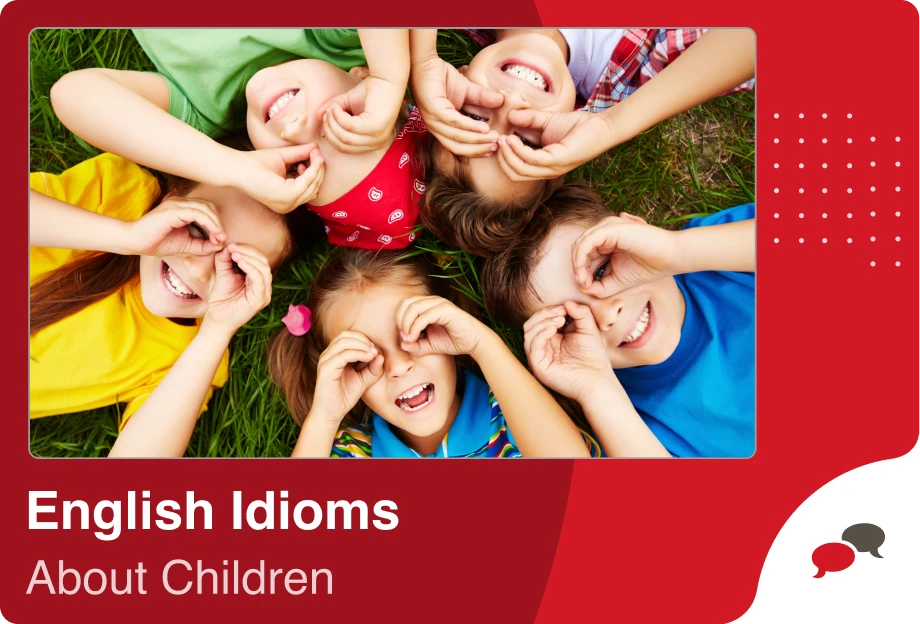Weather is a universal topic that people often use to connect, start conversations, or describe how they feel. In English, weather-related idioms are commonly used to express emotions, situations, and experiences in a more vivid and imaginative way. These idioms don’t always refer to the actual weather, instead, they use weather terms metaphorically to reflect what’s happening in life. Idioms add depth and color to everyday language. Learning weather idioms can help English learners understand native speakers more easily and communicate their thoughts more naturally, so mastering these expressions is both useful and fun.
Learn English with EnglishCentral
No matter what level you’re at, EnglishCentral is the perfect way to learn English or improve yourself further. EnglishCentral is a language learning platform designed to provide comprehensive and effective support for users in their journey to learn English, offering a wide range of rich content. Through EnglishCentral, you can take one-on-one lessons with expert teachers 24/7, where you have full control over selecting the teacher, topic, date, and time. In addition to one-on-one lessons, you can join group lessons and connect with learners from around the world in an interactive classroom setting.
The platform is particularly focused on enhancing fundamental language skills such as listening, speaking, pronunciation, and vocabulary through engaging videos and interactive exercises, allowing users to learn English in a more natural and enjoyable way.
One of the features of EnglishCentral that stands out is its extensive library of videos, including popular movie scenes, music videos, interviews, news clips, and educational content. This diverse selection lets users choose videos that match their interests, making the learning process more fun and personalized. With subtitles provided alongside the videos, users can practice both listening and reading, helping them improve their comprehension while learning the language in a more organic flow.
Additionally, the platform offers interactive quizzes, vocabulary practices, and pronunciation exercises for each video, reinforcing learning and helping students master new words and phrases. Key terms from the videos are highlighted and explained, enabling users to learn vocabulary in context and deepen their understanding.
15 Idioms About Weather
Understanding idioms is a great way to sound more natural and fluent in English. Weather idioms, in particular, are used frequently in both casual and formal conversations. Now, let’s explore some of the commonly used idioms about weather and expand our vocabulary in our daily conversations.
1. Under the Weather
Meaning: Feeling ill or unwell.
Example: I’m feeling a bit under the weather today, so I think I’ll stay home.
2. Head in the Clouds
Meaning: To be daydreaming or thinking about unrealistic things.
Example: He has his head in the clouds all the time, always thinking about future plans.
3. Storm in a Teacup
Meaning: A small problem made to seem much bigger than it is.
Example: It was just a storm in a teacup, nothing to worry about.
4. Every Cloud Has a Silver Lining
Meaning: Even in bad situations, something positive can come out of it.
Example: I lost my job, but every cloud has a silver lining, and I found an even better one.
5. Rain or Shine
Meaning: Regardless of the weather, something will happen.
Example: We’ll meet tomorrow at the park, rain or shine.
6. Snowed Under
Meaning: To be overwhelmed with work or responsibilities.
Example: I’m snowed under with assignments this week, there’s no time to relax.
7. Weather the Storm
Meaning: To go through a difficult or challenging situation and come out stronger.
Example: The company was able to weather the storm.
8. It’s a Breeze
Meaning: Something that is very easy to do.
Example: The test was a breeze, I finished it in just 10 minutes.
9. Chase Rainbows
Meaning: To pursue something that is unrealistic or impossible.
Example: He’s always chasing rainbows with those crazy business ideas.
10. Calm Before the Storm
Meaning: A quiet or peaceful time before something chaotic or difficult happens.
Example: It’s so quiet in the office right now, but it’s just the calm before the storm.
11. Take a Rain Check
Meaning: To decline an invitation but suggest rescheduling for another time.
Example: I can’t go to the movies tonight, can I take a rain check for next week?
12. A Storm is Brewing
Meaning: Something bad or difficult is about to happen.
Example: You can tell a storm is brewing with all the arguments happening in the meeting.
13. Throw Caution to the Wind
Meaning: To take a risk or do something without worrying about the consequences.
Example: She threw caution to the wind and decided to quit her job to travel the world.
14. Lightning Never Strikes Twice
Meaning: Bad things usually don’t happen to the same person or in the same way twice.
Example: Don’t worry about failing the test again, lightning never strikes twice.
15. Right as Rain
Meaning: Feeling perfectly fine or healthy.
Example: After a good night’s sleep, I felt right as rain in the morning.
Example Sentences of Idioms About Weather
It’s important to practice what you’ve learned with more examples. These example sentences will help you understand the idioms better.
– I think I’ll skip the meeting today, I’m feeling a little under the weather.
– She was so focused on her dream vacation, she had her head in the clouds during the entire meeting.
– The argument was just a storm in a teacup; they made up after a few minutes.
– Losing the match was tough, but every cloud has a silver lining, we learned a lot for the next one.
– The concert will go on, rain or shine, so be sure to bring your umbrella.
– With the new project deadline approaching, I’m totally snowed under at work.
– The family had to weather the storm, but they came out stronger and more united.
– The homework was a breeze; I finished it in no time.
– Stop chasing rainbows and focus on a career that will make you happy.
– The neighborhood was so quiet, it felt like the calm before the storm.
– I’m feeling tired today, can I take a rain check on our dinner plans?
– You can tell a storm is brewing; the tension between the teams is getting worse.
– She decided to throw caution to the wind and buy that expensive dress she had been eyeing.
– I was nervous about the presentation, but I reminded myself that lightning never strikes twice.
– I was feeling right as rain again when I took my medicine.
Frequently Asked Questions About English Idioms About Weather
Are weather idioms formal or informal?
Most weather idioms are informal and are commonly used in casual conversations, storytelling, or in media like movies and books.
How can learning idioms improve my English?
Idioms help you sound more natural and fluent like native speakers. They also make your listening and speaking skills stronger because you can better understand everyday expressions.
Are weather idioms used in formal writing?
While weather idioms are more common in conversational English, they can be used in formal writing to add color or emphasis. However, it’s essential to ensure they fit the context and maintain the desired tone.
What are some common idioms about weather?
Common weather idioms include “under the weather” (feeling sick), “head in the clouds” (daydreaming), and “storm in a teacup” (exaggerating a small problem). “Every cloud has a silver lining” means finding something good in bad situations, and “rain or shine” means something will happen no matter what. “Snowed under” refers to being overwhelmed with work, and other idioms like “weather the storm” and “chase rainbows” convey perseverance or unrealistic goals.
Would you like to put what you have learned into practice? You can access everything you need to learn English on a single platform! With 25-minute one-on-one live English lessons, 40-minute group lessons, more than 30,000 interactive videos, vocabulary learning tools, AI-supported tutor MiMi, quizzes, and interactive activities, EnglishCentral offers its users a personalized and quality education plan at an affordable price. How about registering for EnglishCentral now and starting to learn English?











